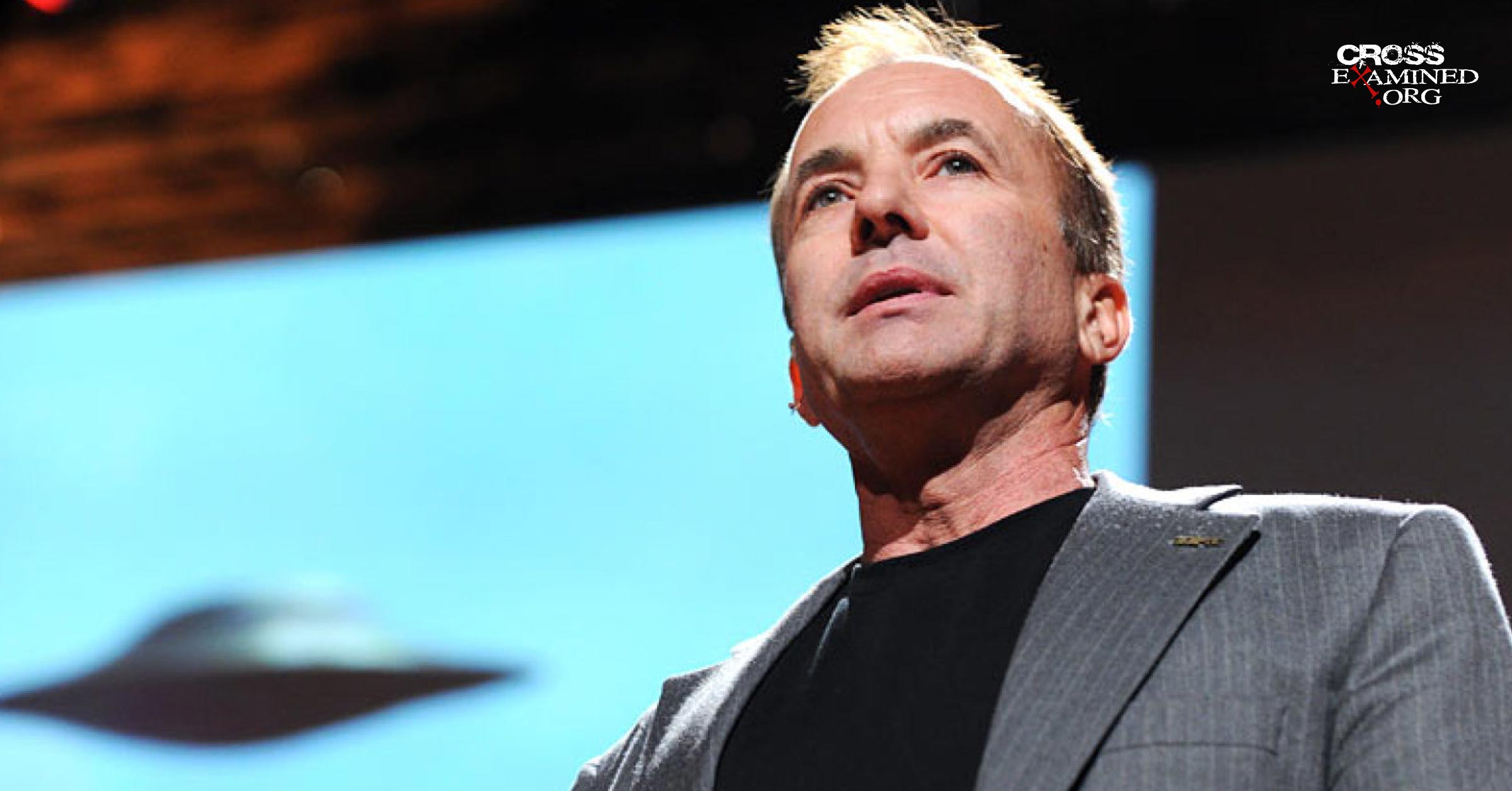By Bob Perry
History shows that prudence and wisdom are rarely on the side of new ways of looking at Scripture. This is especially true of the “progressive” trend to remake Jesus in the image of postmodernism. So when I first heard about Tom Gilson’s new book, Too Good To Be False , I have to admit I was confused. Gilson is a solid Christian thinker, but the back cover of his book told me that “Christians who read it will encounter Jesus in new ways to worship him.” Had he gone over to the dark side? Ten pages in, my fears were allayed. It turns out that the story of Jesus can still surprise you. Gilson’s book is not a new interpretation of Jesus. It is a challenge to see old words with new eyes. And the picture he paints is astonishing.
Would you hire this guy?
Imagine that you receive a memo from someone you work with. Its purpose is to introduce a person he wants you to consider for a job opening you have in your office. In the memo, he describes the candidate as someone who never learns from experience, let alone from his own mistakes. In fact, he has never admitted to making a mistake. His leadership skills have not improved in the slightest. He shows no sign of character growth. When you ask him questions, he rarely gives you a straight answer. In his opinion, you can disagree with him, but that would make you wrong. And he orders those who work with him to do things his way without exception (51-52).
Would you hire him? Or would you ask yourself, “Who does this guy think he is?”
That’s Jesus like you’ve probably never thought of before.
Fail embarrassingly
The insights in Too Good To Be False aren’t based on rethinking Jesus’ doctrines or deity. Quite the opposite. They’re reminders that we’re all too accustomed to the populist Jesus we’ve been encouraged to befriend. When you focus on what he actually said and did, there’s no temptation to just slap Jesus on the shoulder and laugh. Instead, you’re overcome with an impulse to bow down before him and worship him—and he invites you into his circle of trust.
The real Jesus is a leader unlike any the world has ever seen. He speaks and acts with authority, confidence, and power. But he never abuses that power. He never even uses it for his own benefit. Instead, he directs that power toward loving others. He commands respect. And he is always the smartest person in the room.
The combination of these character traits describes a man who cannot be of this world. He is unlike anyone we have ever met or even heard of. And while it is tempting to say that makes him too good to be true, history tells us otherwise. The facts are more compelling. They make him too good to be false.
An innovative character
The character of Jesus is so outrageously superior that it demands an explanation. After all, he is the most memorable character ever created. And that might make it tempting to dismiss him as the figment of someone’s very fertile imagination. But you don’t have that option. To dismiss the Jesus of the Gospels in this way would be to subscribe to the most outrageous conspiracy theory in human history. A coordinated forgery made by multiple authors, all possessed by the same fanciful delusion. But it’s even worse than that.
According to skeptics, this Jesus story is one big version of the Telephone Game. It was invented, embellished, retold, and passed down through multiple narrators in various places. Yet somehow the legendary character created in this process turns out to be exactly the same everywhere. He lives on in all four Gospels (five if you add those invoking the “Q”). Somehow this messy mix “produced a miracle greater than the resurrection: the greatest story of all time, with the greatest character in all of literature, presenting a moral teaching that has changed for the better every civilization it has touched.” (133)
A miracle, no doubt.
Facing the skeptics
The usual skeptics won’t accept it, of course. But Tom Gilson has been taking on them and their ideas on his Thinking Christian blog since 2004. He’s heard all their arguments hundreds of times. So when it comes to handling objections to his thesis, he does so with style, grace, and simplicity. They’re all there—Dawkins, Spong, Aslan, Ehrman, Carrier, Price, Armstrong, Hitchens, and others—and Gilson acknowledges their points. But rather than trying to cut down every tree, he focuses on the forest. Jesus of Nazareth is a character no one could invent.
There are ways to respond to the details of the so-called “contradictions” of the Gospel. But some skeptics refuse to acknowledge them as simple differences of viewpoint. It is tempting to feel compelled to explain why Jesus did not speak out on today’s most burning moral and social issues. They do not care that, throughout history, the solution to every moral dilemma has been through the actions of Jesus’ followers. We have heard the bluster about how Jesus “became God” (Ehrman) or how he was just another repeated legend (Dawkins, Armstrong). We have even been told that he did not really exist (Carrier). None of these arguments get to the heart of the problem.
With all the corruption and shenanigans that go into passing on a made-up legend, how could the synoptic authors do it? How could they each arrive at the same Jesus the man-God when the Telephone Game had not had time to invent his deity before they wrote their Gospels?
The Jesus We Take For Granted
Jesus was a media influencer before that was cool. But what made him popular with those who knew him best also made him notorious among the political and religious leaders of his day. Nobody likes a guy who thinks he’s God incarnate. Those people need to be eliminated. But when those same people reappear a short time later, those who tried to eliminate them know they have a real problem on their hands.
It has only happened once.
Today, the most vehement opponents of Christianity still invoke his name. They do so in an attempt to expose the “hypocrisy” of modern Christians. But when they do so, they are agreeing with Tom Gilson. They even admire the only character in human history whom “no author, no poet, no playwright has devised… a character of perfect power and perfect love like Jesus” (126).
He is the standard by which all other characters are measured. Too loving to be a liar. Too convincing to be a lunatic. He leaves us with only one choice. And Too Good To Be False reminds us that it is a choice we have too often taken for granted.
Recommended resources in Spanish:
Stealing from God ( Paperback ), ( Teacher Study Guide ), and ( Student Study Guide ) by Dr. Frank Turek
Why I Don’t Have Enough Faith to Be an Atheist ( Complete DVD Series ), ( Teacher’s Workbook ), and ( Student’s Handbook ) by Dr. Frank Turek
__________________________________________________________________________________________________________________________________________________
Bob Perry is a Christian apologetics writer, teacher, and speaker who blogs about Christianity and culture at truehorizon.org. He is a contributing writer to the Christian Research Journal, and has also been published in Touchstone, and Salvo. Bob is a professional aviator with 37 years of experience in military and commercial flight. He holds a BS in Aerospace Engineering from the United States Naval Academy and an MS in Christian Apologetics from Biola University. He has been married to his high school sweetheart since 1985. They have five grown children.
Original Blog: https://cutt.ly/eQpVJh3
Translated by Amber Porta
Edited by Daniela Checa Delgado













